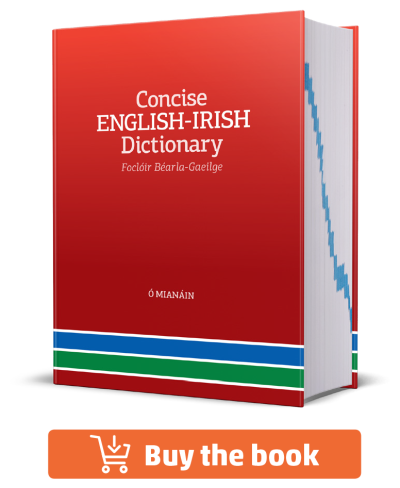Foclóir Gaeilge–Béarla
Ó Dónaill, 1977
An Foclóir Beag
Ó Dónaill & Ua Maoileoin, 1991
English–Irish Dictionary
de Bhaldraithe, 1959
Grammar
Pronunciation
fógairt
fogán
fógarthach
fogas
fogasghaol
fogha
foghach
foghail
foghailbhrabúis
foghain
foghair
foghairt
foghal
foghanna
foghanta
foghar
fogharbhinn
fo-ghartach
fogharthach
fo-ghasra
foghéag
foghéar
foghla
foghail1, f. (gs. -ghla, pl. -ghlacha). 1. (Act of) plundering, pillaging; depredation, trespass. (a) ~ a dhéanamh ar áit, to plunder a place; to cause wanton destruction to a place. Rinneadh ~ ar an teach, the house was pillaged. Dhéanfaidís ~ ar an arbhar, they would ravage the corn. Tá siad san fhoghail ar na barra, they are trespassing on the crops. Jur:~ ar thalamh, ar earraí, ar an bpearsa, trespass to lands, to goods, to the person. ~ chorráin, reaping of unripe corn, etc. Lucht foghla, marauders, plunderers. Prov: Bíonn cluas bhodhar ag fear na foghla, a culprit turns a deaf ear to accusation. Prov: Fál ar an ngort tar éis na foghla, locking the stable door after the horse has been stolen. S.a. beir 5. (b) Fig: Is beag d’fhoghail ar an mbia, you haven’t taken much of the food. Tá sé thar m’fhoghail, it is more than I can do. 2. Spoils. An fhoghail a bhreith leat, to carry off the spoils. 3. Scene of destruction. Tá an gairdín ina fhoghail acu, they have destroyed the garden. (Var: gs. ~e, pl. ~eanna)
foghail2 : foghal1.
PHRASES
IN FOCLÓIR GAEILGE—BÉARLA
Breith maol, san fhoghail, ar dhuine, to catch s.o. red-handed.
Foghail agus ~, plunder and rapine.
~ an dorais i ndiaidh na foghla, locking the stable door after the horse has been stolen.
Is é an ~ (ar an ngort) tar éis na foghla é, it is a case of locking the stable door after the horse has been stolen.
